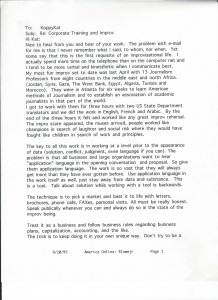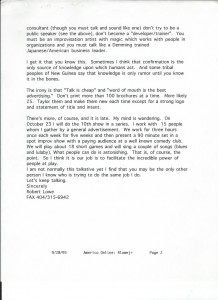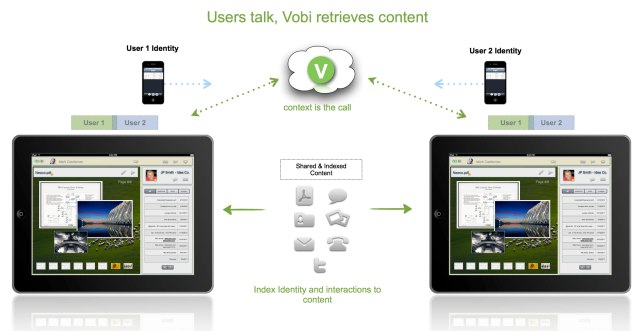I’m preparing for what might be a challenging facilitation gig this month involving a very complex domain, diverse perspectives, at least three languages and rooms where the tables are nailed to the floor. I actually love the first three things. The tables nailed to the floor asks for every bit of my creativity and ability to improvise with space, sound and time. So in preparation, I’m keeping my radar attuned to things floating in front of me. This is how I get inspired. It is like a magnetic field for ideas. Here is what came across the radar today, via a link from the Applied Improvisation Network‘s Facebook Page.
Acceptance of their offer, even if it is tinged with hostility or hoisted by layers of defensive projections about me and what I represent to them, is absolutely essential to engagement with the group. Acceptance of their offer is most often acceptance of their worldview, which most of us will freely share with others who listen without judgment. That is the hard part. To listen without imposing our will on another person even when it seems abundantly clear that their worldview can wind up killing them. Listening and acceptance of the offer of another person’s worldview are power tools in the improvisers toolkit, the builders of meaningful connection. Because why should anyone collaborate with me about a difficult, usually painful and conflict-inducing process of change if I fail to understand the way they see their story? How can I become a part of someone’s story – and no amount of intellectualizing or information-giving influences a person’s choices unless the new message and the messenger become part of his/her story – if I set myself apart from it?
The author, Jude Treder-Wolff. goes on to quote Daniel Pink, from his new book, To Sell is Human.
“The first principle of improvisation-hearing offers-hinges on attunement, leaving our own perspective to inhabit the perspective of another,” he writes. “And to master this aspect of improvisation, we must rethink our understanding of what it is to listen and what constitutes an offer.” Digging into the meaning of improvisation exercises designed to cultivate these skills, he concludes that “once we listen in this new, more intimate way, we begin hearing things we might have missed. And if we listen this way during our efforts to move others, we quickly realize that what seem outwardly like objections are often offers in disguise.” (p. 192)
Then, of course, the magnetic field continued to strengthen and I came across a couple of Facebook posts from the amazing Kat Koppet, who probably doesn’t know that I regularly open her book (Training to Imagine) to some random page and, with that magnetic field, find inspiration and knowledge. She posted a scan of a letter that Robert Lowe sent her which contains some amazing advice to us that resonates with this idea of listening and acceptance. With permission, here are the two pages of the letter.
In my work with international development agencies, people are passionate about solving global problems, feeding the world, saving the planet. With this passion can come an almost blinding form of advocacy, to be heard, to be validated, that can cripple listening, idea creation and collaboration. We SO want to be right and solve the problem, but this can become the problem. There is so much value placed on data, on solutions that we forget to listen for context and meaning. So I’m going to think hard, or maybe better yet, open my mind to what possibilities I can weave into my next engagement that seek space for listening and acceptance as the ground for working really hard, well and with joy on tough, intractable problems.
Any advice to share?
Edit, just a few minutes later… I see this Tweet from Linda Stone:



